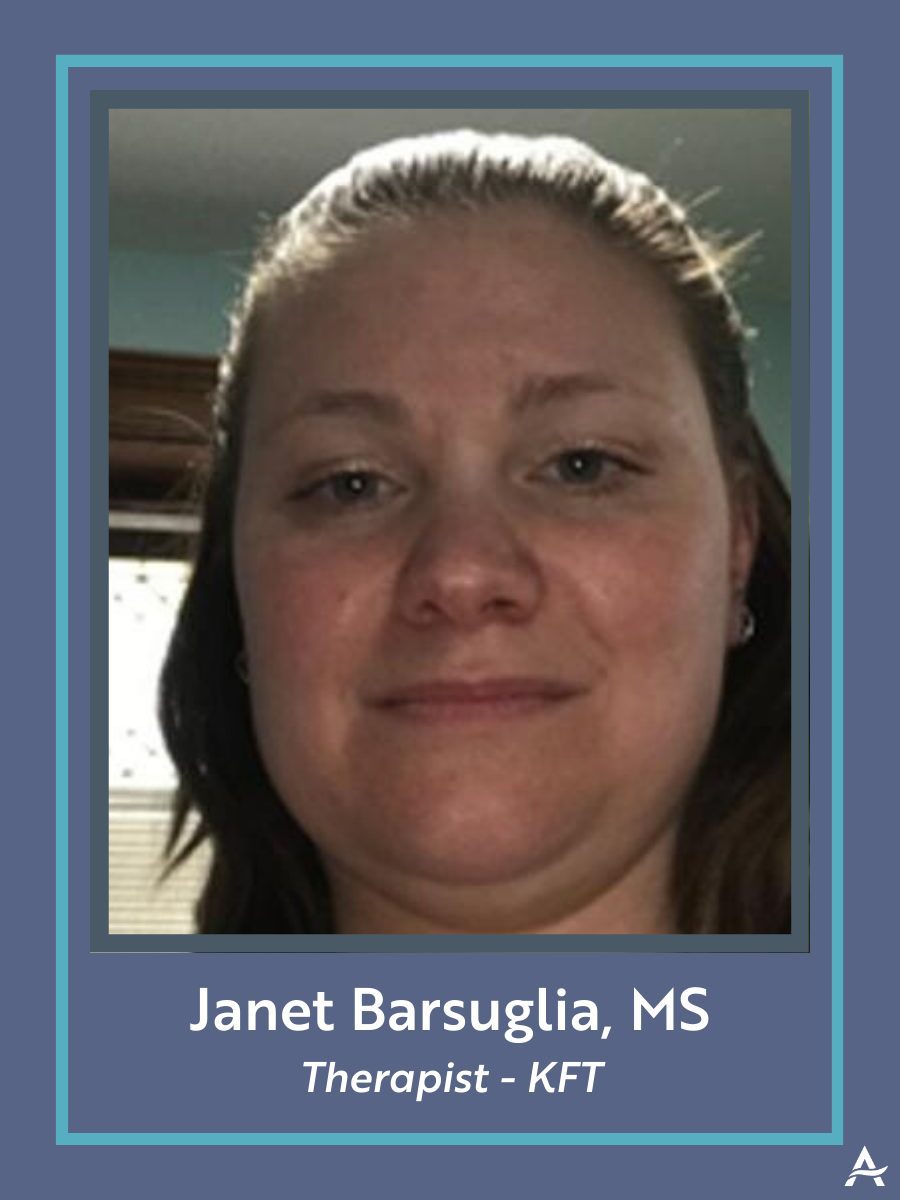
Clinical Contributor
Janet Barsuglia, MS, Therapist, Keeping Families Together
With technology becoming part of our everyday lives, digital tools are often used as note takers, travel planners, or even quick research assistants. These tools can be helpful for small tasks, but when it comes to emotional well-being, nothing compares to the support of another person.
The Power of Human Care
In therapy, real change and comfort come from speaking to someone you can relate to and connect with. A therapist offers real-life experiences and care that make a lasting difference. They do not just listen to words. They tune into tone, body language, personal history and emotions to guide people toward healthier decisions and greater healing.

“Therapists bring empathy, intuition, and real-world experiences to each therapy session. The unique human ability to understand complex emotions, trust others, and adapt to different situations makes humans a vital part of therapy,” wrote Janet Barsuglia, MS, a therapist for Keeping Families Together.
Therapists are also trained to recognize and respond to moments of crisis, whether someone is experiencing suicidal thoughts, panic attacks, or abuse. A 2025 study from Stanford University revealed that AI chatbots may contribute to harmful stigma and dangerous responses when posed with crises. In these situations, empathy and quick judgement are essential. That is where a human therapist makes all the difference.

Human Connection Builds Trust
A strong relationship is built on trust, safety, and understanding. A human therapist supports you with compassion and respect, helping you explore trauma, grief, identity or anxiety at your own pace. They can adapt their approach as they get to know you better, something only a person can do.
“By understanding and sharing a client’s perspective, I am able to tailor my services, improve communication, and ensure client satisfaction,” Barsuglia wrote.
The American Psychological Association notes that the most important part of successful therapy is the relationship between you and your therapist. That strong connection helps people feel safe, supported, and empowered to grow.
Tools Can Support, But People Heal
Digital tools may provide quick tips, reminders, or resources, but they are not a replacement for the care and guidance of a trained professional. At best, they can support you between sessions by helping you keep track of moods, locate community resources, or explore mental health care information.
Healing and long-term growth happen through connection. Empathy, presence, and personalized care are what therapists bring to the table.
Why Human Therapists Matter
Therapists create a safe space to talk openly without judgement. They offer empathy, connection, and understanding, qualities that cannot be replicated by a program. With the ability to adapt, recognize warning signs, and respond in real time, they provide care that supports real transformation.
“Empathy and human connection are important in my work with clients because they are beneficial and essential for building trust, fostering strong relationships, and ultimately achieving positive outcomes for both the client and myself," Barsuglia wrote.

Conclusion
Digital tools can serve as helpful steppingstones or resources, but human therapists remain at the heart of healing. When it comes to your mental health, the guidance and compassion of a real person make all the difference.
If you need urgent support for a non-life-threatening mental health concern, New Jersey has Mental Health Urgent Care centers throughout the state. You can also dial 988 to be connected with help and locate the nearest resource.
If you are struggling and ready to take the next step in your healing journey, Acenda’s therapists are here to help. Your mental health deserves the best care: human care.
If you or someone you know is looking for help, Acenda is here for you. Our trained clinicians offer compassionate, personalized care.

Contributor Spotlight
Janet Barsuglia, MS, is a therapist for Keeping Families Together in Cumberland/Gloucester County at Acenda Integrated Health. She has been with Acenda for 10 years, working as a therapist with the agency for six years. She has her bachelor's in psychology and master's in psychology with a specialization in Child and Adolescent Development.
About the Authors
Hina Patel is a recent Rowan University graduate with experience in journalism, digital marketing, and communications. She worked as the marketing and communications intern for Acenda Integrated Health during the summer of 2025.
Riley de Jong, Communications Strategist at Acenda, attended the University of California – Los Angeles for her undergraduate degree in Communication and minor in Entrepreneurship. She enjoys supporting her community, telling engaging stories, and connecting with others.
Sources
Better relationships with patients lead to better outcomes
Exploring the Dangers of AI in Mental Health Care | Stanford HAI